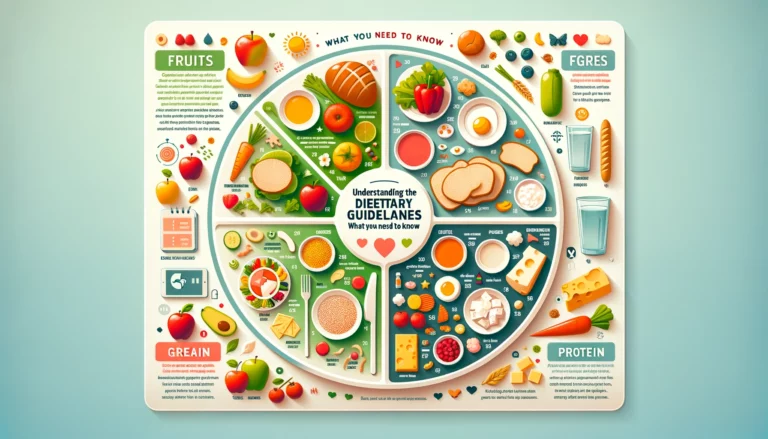Plant Based Diet and the Environment
Table Of Contents
Plant Based Diet And The Environment | Exploring the Connection Between Plant-Based Diets and the Environment
Key Takeaways
- Importance of a plant-focused eating pattern and its ecological significance
- Effects of dietary selections on environmental health
- Practices that promote sustainable farming methods
- Financial considerations related to plant-centered nutrition
- Obstacles and misunderstandings surrounding plant-based lifestyles
Plant Based Diet And The Environment | Understanding the PlantBased Diet
A plant-based diet focuses on consuming food primarily from plants, including fruits, vegetables, nuts, seeds, oils, whole grains, legumes, and beans. Understanding the plant-based diet and the environment highlights the significant role these dietary choices play in promoting sustainability. Plant-based nutrition is associated with numerous health benefits while also contributing to a more mindful and responsible food system. By choosing plant-based foods over animal-based alternatives, individuals can support a decrease in carbon emissions and conserve water resources. This shift towards a plant-based food system fosters a connection between individual health and environmental responsibility, making plant-based cuisine not only a personal choice but also a crucial part of addressing global ecological challenges.
Plant Based Diet and the Environment | Definition and Overview of PlantBased Diets
A plant-based diet primarily consists of foods derived from plants, including fruits, vegetables, grains, nuts, and seeds. This approach to eating emphasizes whole, minimally processed foods while often including plant-based substitutes like plant-based meat alternatives. Adopting sustainable diets, such as a vegetarian diet or incorporating more plant life, supports environmental conservation by reducing reliance on resource-intensive animal agriculture. As people become more aware of the Plant Based Diet and the Environment, they lean towards a balanced diet rich in crops that promote both health and sustainability.
Shifting towards plant-based diets can significantly contribute to environmental health. These diets typically have a lower carbon footprint compared to traditional animal-based diets. By focusing on plant-based substitutes and integrating a wider array of plant-derived foods, individuals can adopt healthier diets that also benefit the planet. The national diet in many countries is evolving to include more sustainable diet choices, which reflect a growing recognition of the interconnectedness of food production and environmental impact. Embracing plant-based eating not only nourishes the body but also fosters a sustainable future.
Common PlantBased Foods and Their Nutritional Benefits
A variety of common plant-based foods offer numerous nutritional benefits that support health and align with sustainable food systems. Vegetables form the cornerstone of vegetarian diets, providing essential vitamins, minerals, and fiber. Dietitians often recommend incorporating a wide range of colorful vegetables to ensure a balanced intake of nutrients. Legumes, nuts, and seeds contribute not only protein but also healthy fats. The inclusion of plant-based milk alternatives can further diversify the diet while offering additional nutrients like calcium and vitamin D, which are crucial for maintaining bone health.
Vegan diets emphasize the consumption of whole, minimally processed foods. This focus on vegetables, fruits, grains, and legumes helps create a diet rich in antioxidants and phytochemicals, promoting overall health. Adopting a raw vegan diet can maximize the intake of vitamins and enzymes by consuming uncooked foods. Such dietary choices not only have a positive impact on individual well-being but also significantly benefit the natural environment. Plant-based diets contribute to a reduced carbon footprint and encourage sustainable agricultural practices, making them an integral part of addressing global food system challenges.
The Environmental Impact of Food Choices
The discussion surrounding the environmental impact of food choices highlights the significance of a plant-based diet and the environment. Healthy dietary patterns, such as those emphasizing plant-based eating, reduce reliance on animal-based foods and mitigate climate change effects. Legume seeds and other terrestrial plants serve as critical food sources, showcasing the benefits of plant-food intake for both human nutrition and environmental sustainability. Unhealthy diets that prioritize processed or animal-based options contribute significantly to greenhouse gas emissions, while transitioning to a plant-based diet index supports better food systems and promotes ecological balance. With the growing recognition of dietetics focusing on plant-based dietary patterns, the positive effects on the environment become increasingly clear.
How PlantBased Eating Reduces Carbon Footprint
A plant-based diet and the environment are closely linked through the reduction of greenhouse gas emissions. Plant-based meals typically require fewer resources compared to their animal-based counterparts. By choosing healthy plant foods and unprocessed plant foods, individuals can significantly decrease their carbon footprint. Plant-based ingredients often involve lower energy inputs, minimizing the environmental impact associated with food production. This shift toward plant-based consumption is not only beneficial for personal health but also contributes positively to the planet.
Transitioning to a plant-based diet can be achieved by exploring a variety of plant-based food sources. Opting for plant-based alternatives at a local plant-based eatery or incorporating plant-based meal options at home can lead to more sustainable eating habits. The plant-based eatwell guide offers practical insights on nutritious choices, steering clear of unhealthy plant foods and promoting a range of wholesome options. As plant-based food sales continue to rise, the collective impact of adopting this diet can foster a healthier environment and support ecological sustainability.
Water Usage in PlantBased vs. AnimalBased Diets
Water usage is a crucial factor in evaluating the impact of various diet choices on the environment. Plant-based diets typically require significantly less water than animal-based diets. For instance, producing a pound of beef can demand over 1,800 gallons of water, while many plant-based options, such as legumes and grains, use a fraction of that amount. This discrepancy not only highlights the sustainability of plant-focused food formulations but also shows how adopting a plant-based diet can contribute to conserving vital water resources. Emphasizing diet strategies that prioritize plant products supports the notion that a Plant Based Diet and the Environment are closely intertwined.
The distinction between plant-based food preparation and animal-derived foods further illustrates the environmental benefits of plant-based diets. While ultra-processed plant foods may not always be the healthiest choice, many whole plant items provide essential nutrients with minimal ecological impact. Studies indicate that plant-based diets produce 75 percent less heat-trapping gases, reinforcing their role in mitigating climate change. As individuals consider their diet consists of more plant lives, the collective shift toward plant-based diets not only fosters personal health but also creates a more sustainable planet through reduced water consumption.
Sustainable Agriculture Practices
Shifting towards a plant-based diet can significantly enhance sustainable agriculture practices by reducing the strain on our natural resources. Emphasizing plant sources in a diet plan leads to a lower dietary greenhouse gas impact, compared to traditional diets that often include animal-based foods. This approach not only minimizes diet-related land use but also promotes efficiency in food production systems. Real diets that prioritize plant-based protein contribute to a more equitable food supply, aligning with model diets that advocate for environmental stewardship. The choice of a plant-based diet enriches both personal health and the planet, showcasing the vital connection between diet and the environment.
Benefits of PlantBased Diets on Land Use
Choosing a plant-based diet significantly impacts land use, as it requires less agricultural land compared to mixed diets that include animal products. Plant protein sources such as legumes, nuts, and grains can provide high yields with fewer resources. Observed diets show that regions adopting plant-based diets witness a reduction in food-associated greenhouse gas emissions. This shift encourages sustainable vegetables, which can enrich soil quality and promote biodiversity, ultimately leading to healthier ecosystems.
The shift in dietary patterns towards plant-based groups also enhances diet quality. Plant-based cookbooks often highlight the versatility and nutritional benefits of vegetable foods, making them accessible and appealing. By substituting plant ingredients for animal-derived ones, consumers contribute to more efficient land use. A focus on sustainable agricultural practices in plant-based diets fosters a more resilient food system, benefiting both the environment and human health.
Biodiversity and PlantBased Eating
The relationship between dietary choices and biodiversity is pivotal in discussions surrounding the Plant Based Diet and the Environment. Research indicates that adopting vegetarian diets can significantly reduce diet-related land use by 76% compared to traditional meat-heavy diets. Plant-based health professionals advocate for integrating more plant protein into the daily diet. Such actions can lead to a decrease in food system emissions, aligning with evolving dietary scenarios that prioritize sustainability.
Various diet groups, including pescatarian and product-free diets, also play crucial roles in promoting biodiversity. These dietary impacts extend beyond individual choices, influencing larger ecological systems. Understanding the dietary footprints associated with different eating patterns can guide consumers toward healthier options. By embracing these alternative lifestyles, individuals contribute positively to the environment while enjoying the nutritional benefits of a diverse plant-based diet.
- Increased consumption of plant-based foods can lead to enhanced soil health and ecosystem resilience.
- Choosing seasonal and local produce supports biodiversity and reduces carbon footprints.
- Diverse crop rotations and permaculture practices enhance biodiversity and yield healthier food systems.
- Reducing reliance on monocultures benefits wildlife habitats and encourages ecological balance.
- Educating consumers about unique plant varieties promotes interest and consumption of diverse foods.
- Supporting sustainable farming practices aids in preserving native plant species and habitats.
- Making informed dietary selections fosters a more sustainable food future for generations to come.
Economic Factors of PlantBased Diets
Understanding the economic factors surrounding plant-based diets reveals significant implications for both individuals and the environment. Studies show that vegan and vegetarian diets have substantially lower greenhouse gas emissions compared to traditional American diets that rely heavily on animal-based foods consumption. The plant-based climate summit emphasizes the importance of dietary change, encouraging dietary practices that align with sustainability goals. By integrating more plant-based additions into our meals, we can reduce our dietary emission footprints, which contributes positively to the plant-based diet and the environment. The diet index reflects various dietary approaches, including those categorized within the diets11 and 12 groups, highlighting the economic benefits of adopting a vegetarian dietary pattern. Transitioning to plant-based options can lead to lower food costs, while also supporting a broader shift towards sustainable agriculture and healthier living.
CostEffectiveness of PlantBased Foods
Examining the cost-effectiveness of plant-based foods reveals significant advantages over non-vegetarian diets. Studies show that incorporating more plant proteins into daily diets can lead to reduced expenses related to food acquisition and preparation. This shift can contribute to lower land-based food production costs, especially when focusing on nutrient-dense options such as legumes. By promoting a Plant Based Diet and the Environment, individuals can not only enhance their health but also enjoy financial savings linked to decreased reliance on high-carbon foods.
The impact of dietary consumption patterns on economic factors is noteworthy. A comprehensive diet recall and monitoring programme can illustrate how disaggregated greenhouse gas emissions vary across diet periods. Many consumers may not realize that transitioning to a diet emphasizing plant foods minimizes the need for animal-based foods, which often carry higher production costs and environmental burdens. As dietary preferences evolve towards more sustainable options, embracing plant-based diets offers a practical approach to achieving both economic and ecological benefits while supporting the goals of a Plant Based Diet and the Environment.
Impact on Global Food Systems
The shift towards plant-based diets significantly impacts global food systems. Studies in food climate research have shown that transitioning from omnivorous diets to plant-based practices can reduce reliance on high-carbon foods and animal-sourced foods. A plant-based phase encourages the consumption of various legumes and vegetable-based protein foods, which are essential for mitigating diet-related diseases prevalent in normal diets. This change not only benefits individual health but also promotes a more sustainable and efficient use of agricultural resources.
Shifts in dietary data reflect growing awareness of the importance of plant-based diets for the environment. As more people recognize the environmental costs associated with omnivorous diets, there is an increasing demand for high-impact plant foods. This transition influences global food systems by reducing the need for resource-intensive animal farming. The trend toward emphasizing plant-based nutrition encourages innovation in food production and distribution, ultimately leading to a healthier planet and population.
- A reduction in greenhouse gas emissions from less reliance on livestock farming.
- Increased biodiversity through the promotion of diversified crop production.
- Improved public health outcomes linked to lower rates of diet-related diseases.
- Enhanced food security by diversifying food sources and improving access to plant-based options.
- Economic opportunities in the development of plant-based food products and markets.
- More sustainable agricultural practices, leading to better soil health and water conservation.
- Empowered consumers who make informed food choices for both health and environmental reasons.
Challenges and Misconceptions
Misconceptions about plant-based diets often stem from a lack of understanding regarding their benefits to the environment and health. Research published in the journal Nature Food highlights that adopting a plant-based diet can significantly reduce dietary GHG emissions compared to traditional animal-based food consumption. The Eat-Lancet reference diet emphasizes a balanced approach to dietary intake, promoting vegetarian eating patterns as a pathway to healthier and more sustainable food choices. Challenges arise from dietary shifts that may exclude particular foods, leading to concerns about meeting nutritional needs. However, studies show that the kcal diet can still be achieved through careful dietary inclusion of multi-ingredient foods, which can provide essential nutrients while minimizing environmental impact. Understanding the implications of common food production practices can further aid individuals in making informed decisions that align with the principles outlined in the Plant Based Diet and the Environment.
Addressing Myths About PlantBased Diets
Many misconceptions surround plant-based diets. Some believe that switching to a Plant Based Diet and the Environment leads to inadequate nutrition. However, dietary surveys and studies like the diet heart study show that vegetarian options can provide necessary nutrients. By focusing on single-ingredient foods and a variety of produce, individuals can enjoy a balanced intake that supports their health. These dietary indices demonstrate that it is possible to meet nutritional needs without relying on animal-based foods.
Concerns about the cost and accessibility of plant-based eating persist. Many people assume that sustainable food purchases are too expensive or challenging to find. However, a well-planned plant-based diet can be cost-effective, often reducing the total greenhouse gas emissions associated with food production systems. By prioritizing whole foods and seasonal produce, consumers can make sustainable food choices that benefit their health and the environment. A resident dietitian can help navigate these options and dispel myths about the intensive diet associated with plant-based lifestyles.
| Myth | Fact | Evidence |
|---|---|---|
| Plant-based diets lack essential nutrients. | With proper planning, plant-based diets can meet all nutritional needs. | Research shows balanced vegetarian diets provide necessary vitamins and minerals. |
| Plant-based foods are too expensive. | A well-planned plant-based diet can be budget-friendly. | Seasonal fruits and vegetables often cost less and require less processing. |
| It’s hard to find plant-based food options. | Many supermarkets and restaurants now offer diverse plant-based choices. | Growing demand has led to a wider availability of plant-based products. |
| All plant-based foods are unhealthy. | Whole foods, such as fruits, vegetables, nuts, and grains, are incredibly nutritious. | Studies indicate that whole plant foods support overall health and reduce disease risk. |
Conclusion
A dietary shift towards a Plant Based Diet and the Environment offers numerous benefits not only for individual health but also for global sustainability. By incorporating a variety of vegetable protein foods, individuals can enjoy diverse nutrient intake while significantly reducing their ecological footprint. Research indicates that estimated-diet records reveal considerable nutrient intake differences between those who consume plant-based diets and those relying heavily on animal products. Emphasizing the importance of various dietary groups, a plant-based approach can lead to improved nutrient intakes and overall well-being, making it a pivotal factor in addressing environmental concerns.
FAQS
How do plant-based diets compare to traditional diets in terms of environmental impact?
Plant-based diets are significantly better for the environment due to their lower diet-related greenhouse gas emissions compared to diets that include animal-based foods. By choosing plant-based food products, individuals contribute to more sustainable plant-based food systems, which results in reduced environmental harm. Studies show that vegan and vegetarian diets have substantially lower GHG emissions, making the transition to plant-based eating a key strategy in combating climate change. Higher consumption of plant-based items, such as legumes, is crucial as they yield the highest-impact plant sources that only cut greenhouse gas outputs.
What are the environmental benefits of incorporating more plant-based foods into your diet and practicing plant-based eating?
Incorporating more plant-based foods into your diet and practicing plant-based eating can lead to significant environmental benefits. Studies show that plant-based products are significantly better for the environment to eat, as they typically require less land and water than animal-based foods. For example, plant-sources such as legumes produce much lower greenhouse gas emissions compared to high-carbon foods. Additionally, diets that focus on plant-based foods like vegetarian and pescatarian diets can yield better diet-level outcomes and are encouraged by various diet monitoring programmes. Therefore, making a shift towards plant-based eating is crucial for fostering a healthier planet.
What are the key advantages of adopting plant-based diets over animal-based foods for reducing environmental impact?
Adopting plant-based diets is significantly better for the environment to eat plant-based foods compared to traditional animal-based foods. The environmental advantages of vegetarian diets include reduced legume production demands and lower emissions associated with high-carbon foods. Additionally, dietary estimates show that diets11 and diets7 yield better results in sustainable practices, making them a more planet-friendly option. Consequently, people who choose to substitute plant-based foods instead of animal-based foods can contribute positively to the environment while enjoying diverse and nutritious dietary indices.
How can I evaluate the environmental impact of my current diets compared to vegetarian and plant-based diets?
To evaluate the environmental impact of your current diets, you can analyze factors such as carbon footprints, diet indices, and how many high-carbon foods you are consuming. Comparing these metrics against vegetarian and plant-based diets can highlight the potential benefits of switching away from animal-based foods and the reductions in environmental strain that such a diet yields. Regularly tracking your food choices and their environmental impact can yield insights into how your diet affects the planet, thanks to the differences in resource usage and emissions between plant-based and animal-based foods.
What strategies can I implement to transition from a traditional diet to plant-based diets for better environmental sustainability?
Transitioning to more plant-based diets can significantly reduce the consumption of high-carbon foods, which are often found in traditional diets containing animal-based foods. By systematically decreasing your intake of these animal-based foods and incorporating more vegetarian options, you can lower your overall diet’s carbon footprint, contributing positively to the planet. Food thanks to various resources are available to support your dietary changes while maintaining nutrition and balance in your meals.
What are some effective ways to reduce high-carbon foods in my diet while transitioning to vegetarian or plant-based diets?
To effectively reduce high-carbon foods in your diet while transitioning to vegetarian or plant-based diets, you can start by identifying and eliminating animal-based foods from your meals. Incorporating more vegetables, legumes, and whole grains can help create a diet that is lower in carbon emissions. Additionally, reducing the overall consumption of processed and high-carbon foods can significantly contribute to a more sustainable diet. Making gradual changes allows your body to adjust while also making it easier to maintain a long-term commitment to your new diet.
What are some ways to assess the efficiency of plant-based diets compared to traditional diets in reducing high-carbon foods?
To assess the efficiency of plant-based diets compared to traditional diets, consider evaluating your current diets for high-carbon foods and analyze how vegetarian and plant-based diets can contribute to lowering your carbon footprint. Research indicates that transitioning to more plant-based diets can significantly decrease reliance on animal-based foods, leading to better environmental outcomes.
How can individuals decrease their consumption of high-carbon foods while adopting a vegetarian or plant-based diet?
To effectively lower high-carbon foods in your diet while transitioning to vegetarian or plant-based diets, focus on incorporating more fruits, vegetables, legumes, and whole grains. These foods not only help reduce reliance on animal-based foods but also contribute positively to the planet by minimizing carbon emissions associated with high-carbon foods.
How do the benefits of plant-based diets influence individuals’ choices compared to vegetarian and animal-based diets?
The benefits of plant-based diets significantly influence individuals’ choices, as many people are increasingly aware of how their diets, including vegetarian options and animal-based foods, impact our planet. By choosing plant-based diets, individuals can efficiently reduce high-carbon foods and contribute to a more sustainable environment, striving for diets that are more beneficial for the planet.
What are the most significant challenges individuals face when transitioning from animal-based foods to a plant-based diet?
When individuals shift from animal-based foods to plant-based diets, they often encounter challenges such as finding suitable replacements for high-carbon foods, ensuring adequate nutrition, and navigating social situations. Many need to learn how to craft balanced diets that include a variety of vegetarian options while minimizing high-carbon foods. Additionally, access to resources and knowledge about plant-based cooking can impact their success in making this transition.




